In his new book ‘Hunting Ghislaine,’ UK journalist John Sweeney claims a horrific childhood made the magnate’s daughter into a sociopath and set the stage for her sex crimes
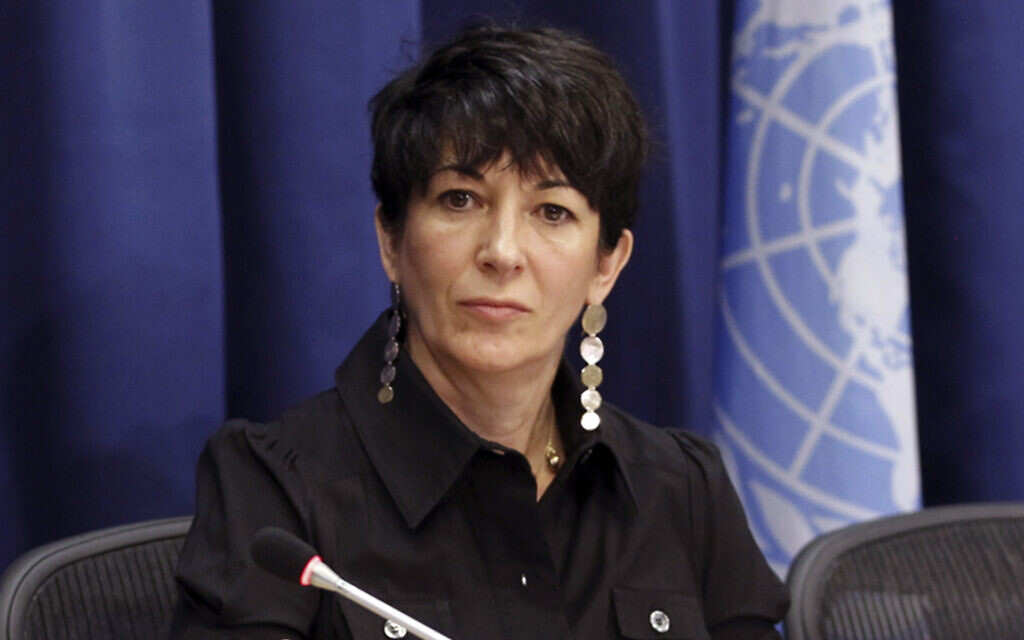
The world’s media was first introduced to Ghislaine Maxwell in November of 1991 when she was chosen by the Maxwell family to give the first public expression of grief for her father, British newspaper tycoon Robert Maxwell, who died near the Canary Islands.
Maxwell’s death — he fell off the back of the yacht he named after his favorite child — was shrouded in controversy. Standing on the Lady Ghislaine, a visibly distressed Ghislaine Maxwell read out her statement in a broken voice: “I also want to take this opportunity to thank all the many hundreds of people who have sent messages of support to us at this very, very sad time.”
A self-made multimillionaire, Robert Maxwell rose from extreme poverty in a Jewish shtetl in Czechoslovakia, where he attended yeshiva, a seminary for religious studies. As a teenager, he escaped the Nazis and joined the Czechoslovak Army in exile. He then went on to become a hero in the British Army decorated for his actions during World War II, an academic publishing magnate, a UK Labour Party MP, and eventually the owner of the Daily Mirror, one of the UK’s biggest-selling tabloids.
Following his death, world leaders collectively expressed their public condolences. Then-British prime minister John Major commended “an extraordinary life, lived to the full.” The Soviet Union’s Mikhail Gorbachev said Maxwell’s death had left him “deeply grieved.” Then-United States president George H.W. Bush, meanwhile, hailed Maxwell’s “unwavering fight against bigotry and oppression.”
But, as UK journalist John Sweeney writes in the opening pages of his new book, “We can set the pieties aside, Robert Maxwell was a monster, cruel, [and] mad — mad as a box of frogs.”
The book, “Hunting Ghislaine,” is based on the hit episode of the same name on the author’s podcast, “Sweeney Talks,” which has nearly 5 million downloads. It focuses on the strange and abusive relationship between Ghislaine Maxwell and her father, Robert, whose cruelty, Sweeney claims, deformed Ghislaine Maxwell long before she met Jeffrey Epstein.
The British journalist calls the life of Ghislaine Maxwell a dark fairy tale for the 21st century, “told the wrong way round with the princess starting out in a palace and ending up in a dungeon.”
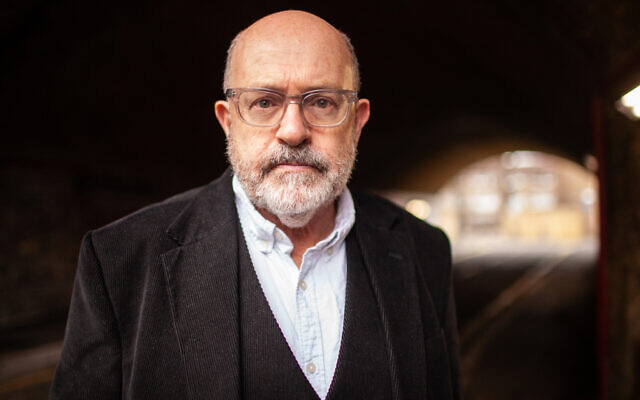
In late June, the 60-year-old former British socialite was sentenced by a US District Court in Manhattan to 20 years in prison for conspiring with Epstein for over a decade to sexually exploit and abuse underage girls.
Epstein, a convicted sex offender and financier, was arrested by federal authorities in July 2019 for sex trafficking and killed himself in a New York City federal jail just one month after his arrest.
Sweeney notes that Ghislaine Maxwell has always denied knowledge of Epstein’s pedophilia, both in scope and nature. Meanwhile, he compares the scale of the operation Maxwell took part in to serve Epstein’s perverse sexual needs to “running a factory.”
Sweeney’s book also explores how Maxwell ran Epstein’s life and four homes — his Manhattan mansion, his home in Palm Beach, his ranch in New Mexico and his private island, Little St. Jeffs in the US Virgin Islands.
“In traditional formula fairy tales — the one set out in Netflix’s ‘Jeffrey Epstein: Filthy Rich,’ there is only one monster [Epstein]. In this book, the twist is that there is definitely more than one,” Sweeney writes.
Sweeney is an award-winning investigative journalist, broadcaster, and author who has written 12 books, including: “Killer in the Kremlin,” “The Church of Fear: Inside the Weird World of Scientology” and “North Korea Undercover — Inside the World’s Most Secret State.”
The Times of Israel spoke with Sweeney via Zoom from his home in London. The conversation has been edited for clarity.
The Times of Israel: Robert Maxwell is a central figure in this book. You’ve actually met him before. What were your impressions of him?
John Sweeney: In the 1980s I was covering a story for Time Out [Magazine], where Princess Diana was visiting a children’s hospital, Great Ormond Street, in London. Maxwell showed up. Like an ogre, he pounced on Diana, his chops slavering, his face beaming, that he had the beautiful princess in his paws. The way he managed to hold and embrace her was very creepy.
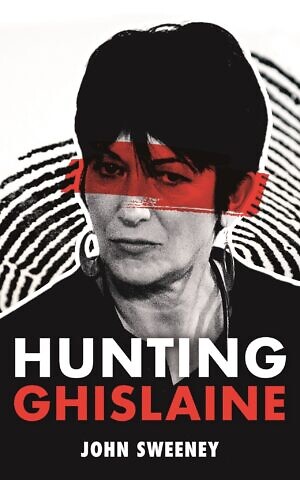
Then when I did the podcast that led to this book I thought there is something missing in this story. I began to probe deeper into Ghislaine’s upbringing and childhood in Oxford in the UK. Her mother, Betty, was a kind of saint. Her father, Robert, was a monster. The central argument I make in this book is that Ghislaine Maxwell was screwed up long before she met Jeffery Epstein.
You write in the book that Robert Maxwell was a “sadist who loved sadism as spectacle.” You also cite an interview you did with psychologist Wendy Behary, the author of “Disarming the Narcissist,” and describe Ghislaine Maxwell as a “hostage princess.” Can you explain this term?
This comes from Behary, who described how narcissistic men, when their wives become older, end up replacing their trophy wife with the daughter. Robert Maxwell [also fits this narrative]. This is beyond cruel because it ends up defining the daughter’s upbringing. It also ruins their sense of self and moral self-worth. These young girls are brought up without boundaries and they start to live by the idea that whatever daddy wants is right.
Ghislaine Maxwell ended up playing a central role in this abuse of children — which Epstein carried out almost on an industrial-like basis — because she was psychologically and emotionally abused by her father. For Ghislaine, what happened to these girls was kind of normal.
You also explore the idea that perhaps Robert Maxwell was a pedophile and suggest that he may have abused his daughter Ghislaine. Is there any evidence to support this?
This is a very difficult area. It’s common knowledge that in many cases where people [sexually] abuse children, they have been abused themselves. Is it the case here? Well, we don’t know. Even asking that question is difficult for several reasons.
You cite a story from the book “My Unique Relationship with Robert Maxwell: The Truth at Last” by Eleanor Berry. What does it tell us about the relationship between Ghislaine and her father?
Well, Eleanor Berry, who is the daughter of Lord Hartwell, the former owner of the Daily Telegraph, was a childhood friend of Ghislaine Maxwell’s. Berry became a guest at the Maxwells’ home in Headington Hill Hall and lived there for a year, according to her account. Berry [writes in her book] how she had a conversation with Ghislaine when she was 9 years old where Ghislaine said, “Daddy is really nice because he lets me choose the [instruments] he beats me with.” If true, that is not-normal and wrong.
But there is a problem with the reliability of this source, you also point out.
Yes, because Eleanor Berry has been a psychiatric patient on and off for much of her life. Brian Basham, who is a spokesperson for the Maxwell family, denied the story when I asked him about it, and ridiculed it. Nevertheless, Eleanor Berry has written about this issue a couple of times. But the Maxwell family has never publicly confronted her on this. I did get in touch with Eleanor Berry, but she was too ill to talk to me. If she is telling the truth, then it appears that there was an inappropriate relationship between Robert Maxwell and his daughter. It’s almost impossible to make a concrete judgment about how dark that relationship was, though.
Also, someone then came to me after listening to the “Hunting Ghislaine” podcast and told me that when Ghislaine was living at Oxford when she was a [young woman], she would regularly recruit young girls and introduce them to her father. I would say this is more than a rumor, but it is not something I would stand over evidentially. But I think it’s fair enough to present the story in the book and say, “Here is this evidence, and what do you think about it?” People can then make up their own minds.
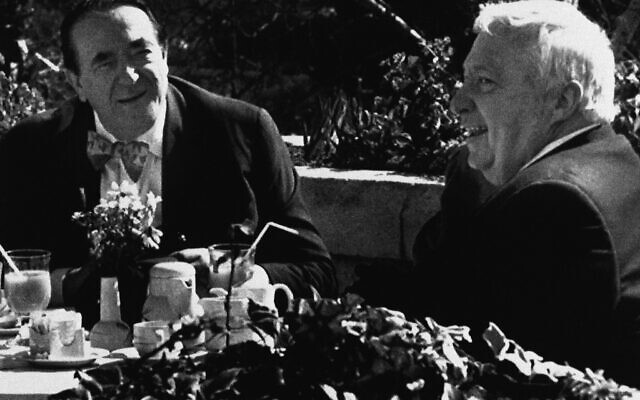
Robert Maxwell lost most of his family in the Holocaust. You claim he denied his Jewish heritage for most of his life. Why did he choose to do that?
When Maxwell came to London in the 1960s, he pretended not to be Jewish. That was partially because of the loathsome antisemitism that was a very real thing in London at the time. I also spoke to British journalist Jenni Frazer, who interviewed Maxwell for Britain’s Jewish Chronicle in 1986. She was sent by the paper to ask why Maxwell had been in denial of his Jewishness. She described how before the interview Maxwell purposely began using the lavatory very, very noisily and she was made to wait outside, where she could hear splashing noises. She said she was in no doubt that Maxwell put on this display deliberately as a power play and to make her feel uncomfortable.
In the book, you also include a quote from an interview Robert Maxwell did with the BBC’s “Desert Island Discs” radio program in 1987, where he described the pain of being a Holocaust survivor. “The sorrow of those losses are ever before me… I don’t hate as I did during the war, but I cannot forget or forgive,” he said. You seem to suggest in the book that there is a connection between his dark family history and Ghislaine Maxwell’s tragic story.
Part of Ghislaine Maxwell’s tragedy is the awfulness of the Holocaust and the awful effect it had on Robert Maxwell. However, there are many Jews who are friends of mine who lost many members of their family in the Holocaust, and they have not become monsters. This is not the whole of the story. But it’s certainly part of it.
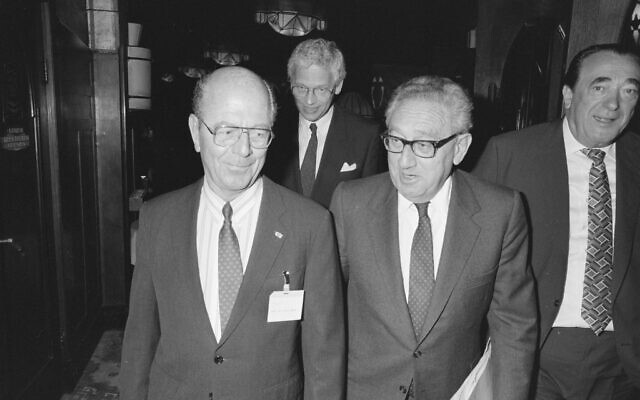
Many rumors have circulated since Robert Maxwell died in 1991. One says he could have been assassinated by Israeli intelligence. In the book, you cite a story from Ari Ben-Menashe, who worked with Israeli military intelligence for 10 years between 1977 and 1987. Ben-Menashe claimed that Maxwell had been assassinated by the Mossad for trying to blackmail it. What do you make of this claim?
I’m not convinced by it. The problem is Ari Ben-Menashe is a fantasist. He testified that he personally witnessed George H.W. Bush meet members of the Iranian government in Paris in October 1980, as part of a secret Republican Party plot to keep the 52 US hostages held in Iran for longer, until [then-]president Jimmy Carter would lose the 1980 presidential election to Ronald Reagan. This [conspiracy theory], known as The October Surprise, was found by the US Congress to be entirely untrue.
Robert Maxwell was a big friend of Israel, especially towards the end of his life. He may also have helped Jews get out of Romania in the 1980s. Maxwell was given a grand burial on the Mount of Olives in Jerusalem. The Israelis felt indebted to him. The idea that Israeli intelligence would have bumped him off, I don’t buy it. There is no reason for it.
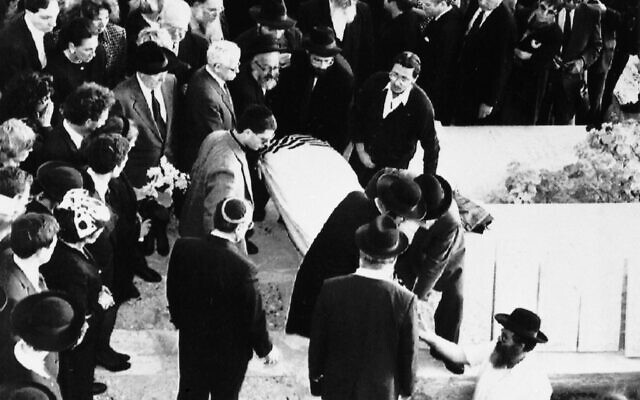
Julie K. Brown, an American journalist and author of “Perversion of Justice: The Jeffery Epstein Story” told The Times of Israel in July 2021 that “it’s not beyond the realm of possibility that Epstein had connections to the Israeli intelligence community.” What’s your view on this?
I’m skeptical and I have seen no evidence for it. There was one story that appeared in Britain’s Mail on Sunday back in 1992 claiming that Epstein had some contact with the intelligence services. It could be possible that Epstein, who was Jewish, picked up tidbits and traded them with intelligence, who gave him stuff back. But that does not mean he had a serious relationship with Mossad.
You also look into the rumors that Robert Maxwell and Jeffery Epstein knew each other — this also suggests Epstein allegedly helped Robert Maxwell back in the 1980s to hide dirty money and that the true source of Epstein’s wealth was Maxwell’s dark gold. You refer to this as “the Holy Grail of Maxwellology.” Is there any truth in it?
The two people who say that Robert Maxwell and Jeffery Epstein knew each other were Ari Ben-Menashe, who was a proven fantasist, and Steven Hoffenberg, who was one of America’s greatest fraudsters. In November 1991, [just before his death] Robert Maxwell was facing financial ruin. It doesn’t make sense that he would have squirreled money away via Epstein. Also, there is no evidence of the two men ever meeting. None whatsoever.
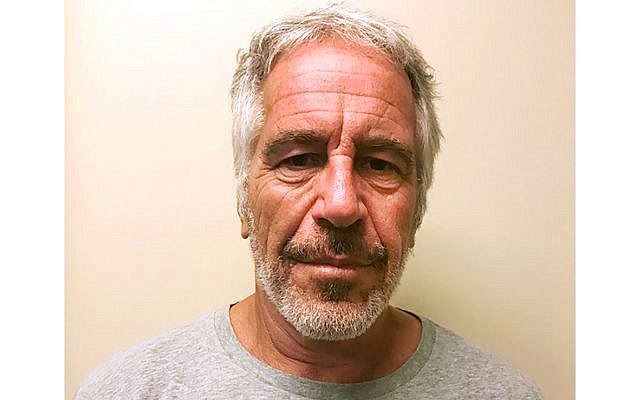
At one point in the book, you call Epstein “a bit of a Nazi.” Can you elaborate on this briefly?
Epstein believed in transhumanism, which is this rather ghastly, far-right nonsense. The basic idea behind is that you can perfect the human being. Weirdly, transhumanism is not far off Nazism. To be fair to Robert Maxwell, at least he did fight the Nazis when he was serving with the British army, whereas Epstein, philosophically, was a bit of a Nazi himself.
While awaiting trial in August 2019, Epstein is said to have committed suicide in a New York prison. But rumors persist that he was murdered. What do you think happened?
When Jeffery Epstein died, he was about to go to prison for a very long time. He hated prison, and he had tried to kill himself once before. I believe he succeeded on this occasion.
You attended the trial of Ghislaine Maxwell in New York in December 2021. What were your impressions of her from sitting in on the trial? You suggest she never really expressed any remorse for her crimes.
I believe Ghislaine Maxwell is a sociopath who was monstrously and psychologically abused by her father. That meant she probably never got a sense of selfhood, which prevented her from developing a proper understanding of right and wrong. I also think she is extremely arrogant. Still, I do feel sorry for her. But I agree with the jury’s verdict. I understand why the judge gave her a severe sentence. Because Ghislaine Maxwell is guilty as hell.
As reported by The Times of Israel
